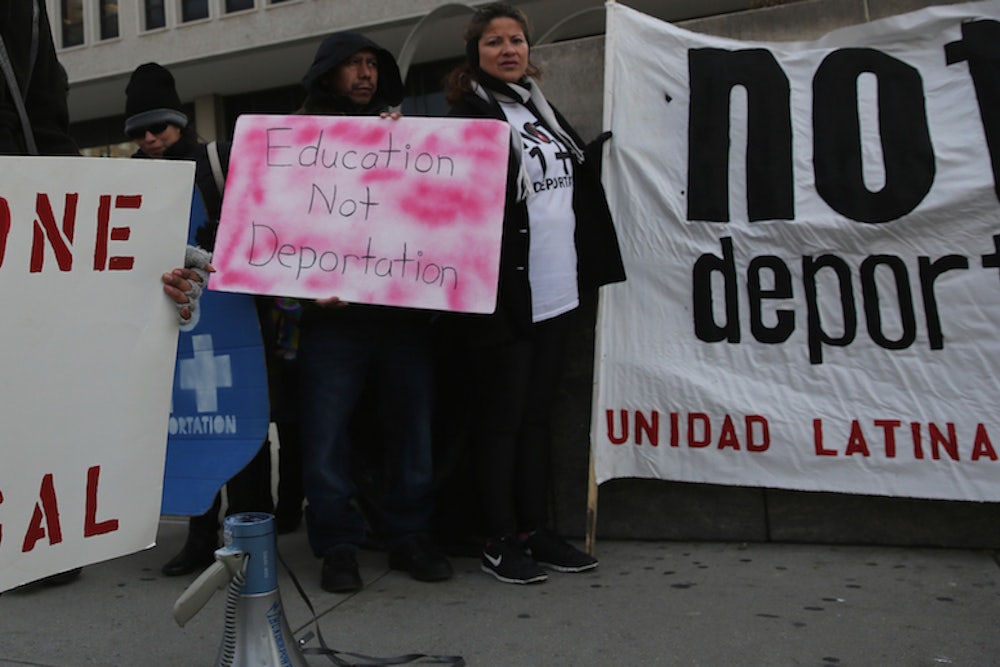As many as 4.3 million people now subject to deportation are getting a reprieve—and a chance to work legally—thanks to the executive action that President Obama announced on Thursday evening. But the phrase “as many as” is a critical one. The real number of people who take advantage of this program is likely to be smaller, for a variety of reasons that might please opponents and disappoint supporters of the move.
As Danny Vinik has explained, the newly protected include undocumented residents who were brought to the country as children but, because of their age or their date of arrival, did not qualify for the original Deferred Action for Childhood Arrivals (DACA). Undocumented parents of legal residents and citizens can also qualify for the new program. But eligible people still have to apply to receive the protection and work authorization, and not everyone will.
The application process will be modeled after the one currently in place for those seeking DACA. Applicants to the current program have to submit a fee and documentation proving they fit all of the criteria, and then show up to an Application Support Center to provide biometric information like fingerprints. Since Obama introduced that program two years ago, around 55 to 60 percent of eligible people who were brought here as children applied for protection, according to the Migration Policy Institute’s Marc Rosenblum.
One of the most significant factors standing in the way greater participation has been cost: Applicants have to pay $465 to be considered. The government can waive the fee, but only in the harshest of circumstances—conditions like homelessness or lack of family support for those under 18 years old, or significant medical debts. An Immigration Policy Center report found that the fee deterred more than 43 percent of eligible non-applicants surveyed.
Other eligible people might not apply—or at least not apply successfully—because they don’t have the necessary paperwork. The DACA application requires a whole raft of evidence: of identification, age upon entry, continual residence in the United States since 2007, and student or military status. Since those applicants all came to the country as children, many of them are able to provide school transcripts. But most of the newly eligible people won’t have such an easy time proving they’ve been in the country for the past five years—especially if they’ve been working under the table or living in informal arrangements.
Some people don’t apply simply because they are scared. For many undocumented people, who live in fear of deportation after a police encounter as minor as a traffic stop, approaching government officials is anathema to their survival instincts. Some realize that executive orders like DACA are, by definition, temporary and subject to quick reversal under future presidents.
And even among those who will apply, not all will receive protection. Undocumented parents of legal residents and citizens will have to pass the same kind of background checks as those applying for visas, Rosenblum said. People who will qualify under the expanded umbrella of DACA can’t have any felonies or significant misdemeanors on their track record. Protection is far from automatic: undocumented people will have to not only fit the eligibility requirements, but prove it.
